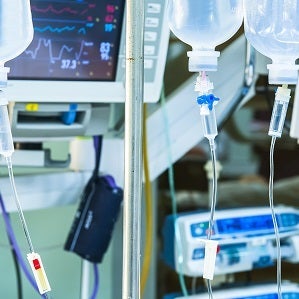Heart Team Begins Transcatheter Aortic Valve Replacement Program
October 10, 2019Categories: Bassett News, Cardiology/Heart Care
Bassett Medical Center surgeons and interventional cardiologists are now performing transcatheter aortic valve replacements (TAVR), the standard of care for patients with severe symptomatic aortic stenosis.

Director of the cardiac catheterization lab and interventional program Dr. Dhananjai Menzies, who has performed TAVR for more than 170 patients, explained the procedure: "We replace aortic valves through a catheter that is advanced from the groin to the heart without the need for open heart surgery."
When it first became available about a decade ago, TAVR was available only to patients for whom traditional open-heart surgery was high risk or unavailable. Dr. Menzies added, "The procedure has exponentially grown, has been studied in patients with severe symptomatic aortic stenosis and has been found to be superior to surgical aortic valve replacement in the vast majority of patients [regardless of risk category]."
The benefits to the patient of avoiding an open surgical procedure are many. Recovery is gentler on the patient, with less risk of stroke, death and mechanical ventilation complications. The hospital stay with TAVR, generally one overnight, is far less than that of an open-heart surgery.
Making TAVR available allows Bassett to treat more patients with severe aortic stenosis. "There are a lot of undertreated and undiagnosed patients, so one of the important components of this new therapy is that we will evaluate more patients in our valve clinic to identify more candidates for this therapy," said Dr. Mun Hong, chief of the Department of Cardiovascular Services. "This therapy improves both quality and quantity of life."
Bassett's combination cardiology-cardiac surgery department, its true heart team approach, is one of the most important requirements for offering this type of therapy to patients. "More and more often, this procedure is being done at smaller hospitals like ours because the majority of patients who need heart surgery are not at major medical centers but in more [rural communities] like ours," said Dr. John Kelley, chief of Cardiac Surgery. "For them, this means recovery and care closer to home, less recovery time and being closer to family after the procedure."
